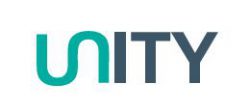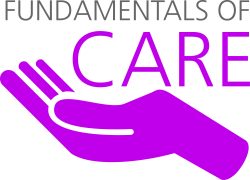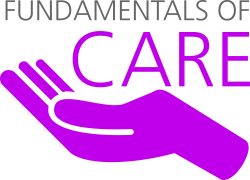Monthly archives: February 2024
Chief Executive’s Message – Friday 2 February

First and foremost, I would like to start my message with a thank you to those of you who took the time to complete your Pulse survey, which closed on Wednesday. If you attended TeamTalk earlier this week, you would have heard our Interim Chief People Officer, James Fleet inform everyone that we have achieved a response rate of above 40 per cent. (If you didn’t get to TeamTalk and would like to watch the recording, it is available here).
I am really pleased with this, but I know some of you are wondering why there has been such a focus on the response rate, and that’s because the pulse surveys and the annual staff survey are one of biggest mechanisms we have as an organisation to see how you are all feeling, what works well, and most importantly what needs to be made better. A higher response rate gives us a much better set of data to work through and highlight key areas of focus.
You, our people, are at the centre of our “3 Ps” strategy, and we want to make SWB the best place for you to work. Once we receive the results of both the annual survey and the latest pulse survey, which is likely to be in the next few weeks, we will review them and produce tangible actions, based on what you have told us. These will be at both Trust and group level, they will be shared with you, and we will regularly inform you of our progress against them.
In March we will launch our People Engagement Groups, there will be one in each of the clinical groups, including corporate, and they will be chaired by the senior leadership teams, with opportunities for colleagues at all levels to get involved. James also touched on this in TeamTalk and we will bring you more information on these groups over the coming weeks.
One of the things that has impressed me since I have been chief executive of this organisation, has been the commitment to quality improvement. As you know, our QI poster contest is an annual programme, which is now in its 5th year.
There has been a good response with 37 entries submitted this year. This is less than previous years but remarkable given the operational pressures faced by frontline colleagues. The judges are currently reviewing the posters and will be in touch with shortlisted entrants at the beginning of February to invite them to an awards ceremony with the Trust Board on 13 March 2024.
You can get involved and vote online for their three favourite posters. View and vote for your posters by clicking here. Encourage your colleagues to do so too, there is a £500 prize for the poster that is voted most popular with staff. Voting closes on Monday 5 February.
Finally, next week sees the launch of phase three of the Midland Met management of change process. If you have line management responsibility, you should have been invited to a meeting at 11.30am on Tuesday – if you have not received this invite, please e-mail emily.smith46@nhs.net and we will add you to our line manager distribution list.
This process is your opportunity to ask questions and raise any concerns you might have about changes being made for us to successfully and safely open Midland Met. The team has already pulled together an extensive list of FAQs which will be shared during the process, but feel free to ask more, no question is a silly question, and you just might come up with something that we haven’t thought of yet.
I hope you all have a wonderful weekend.
Richard
Care Friends app download for free today

To support everyone who needs our help, we need more caring people like you.
SWB has been handpicked to be the very first NHS Trust to have access to Care Friends, the employee referral app that is already being used by thousands of care workers around the world.
When you download the Care Friends app, you can share jobs with the local caring people you know by text, WhatsApp, social media, or even face-to-face. You’ll instantly earn points for every local referral and can cash in your points to receive extra money in your pay. Earn up to £100 for every referral you make*.
Check out this video to find out more.
Download the app for free by following these simple steps – it takes just 60 seconds!
- Scan the QR code below on your personal phone

- You will be asked to enter your mobile number, which won’t be recognised – don’t worry, this is normal! Tap ‘next’.
- Enter your work email address
- A one time passcode will be sent to your work email address. Enter the code into the app and you are ready to start sharing!
Need help? Email swbh.carefriends@nhs.net and we will be happy to help you get started.
*Candidates must live within the below postcodes for points to be awarded. See the settings section of the app for full details of referral eligibility.
B1, B10, B11, B12, B15, B16, B17, B18, B19, B20, B21, B23, B24, B3, B42, B43, B44, B5, B6, B62, B63, B64, B65, B66, B67, B68, B69, B7, B70, B71, B73, B8, B9, DY4, WS1, WS5
Mast cell tryptase changes within Unity

When a mast cell tryptase is requested electronically there will be a new question on the order form where the user has to answer ‘time taken after start of symptoms?’ from a selection of answers:
- <1 hour
- 1 – 3 hours
- 3 – 6 hours
- 6 – 12 hours
- 12 – 24 hours
- >24 hours/baseline
- Not available
This information will also be available on Unity along with the result.
If a tryptase is requested manually the time the sample was taken after the start of the symptoms should also been included on the request form.
Clinical guidance: In case of anaphylaxis, tryptase will raise with peak level around one hour, returning to baseline in about 6 – 8 hours. Accurate time of sample collection and time of onset of reaction is required to assess for anaphylaxis. Sample should be taken as soon as possible after reaction; Second sample between 1 – 2 hours and third sample 24 hours or later would be ideal. As a minimum, one sample around 1 hour should be obtained to assess for anaphylaxis.
For more information, please call Immunology laboratory on 01902 695279 or email rwh-tr.ImmunologyLab@nhs.net.
Vulnerable adults and personalising their care event

 The Personalisation of Care team is hosting an event focusing on “Vulnerable Adults and personalising their care” on Friday 15 March.
The Personalisation of Care team is hosting an event focusing on “Vulnerable Adults and personalising their care” on Friday 15 March.
The event will consist of a panel of experts from a variety of organisations, including Paula McGowan, mother of Oliver McGowan, Claire Mahmood from Buds, The Deaf Society, Afrah Mufhili, Therapists, and our very own Sonia Bal.
The day will run from 9am – 4pm and will include lunch.
If you would like to attend the event, please email harry.cleaver@nhs.net by Wednesday 14 February.
All Our Health implementation toolkit published to maximise the public health impact of the health and care workforce

The NHS Long Term Workforce Plan recognises that public health core skills and knowledge must be embedded across the wider workforce to improve population health. To support delivery of this ambition, the Office for Health Improvement and Disparities (OHID) have worked with several partners to develop an implementation toolkit, which aims to increase the use of the all our health elearning resources, which focus on critical public health issues.
The toolkit has been developed for higher education institutions, provider trusts and other organisations wanting to enhance their existing offer for curricula and/or continuing professional development on public health and health inequalities.
Engagement with this programme will assist in preparing the current and future health and care workforce to maximise their public heath impact.
The toolkit includes:
- An introduction slide set for senior leadership teams
- A guidance and support slide set for implementation leads
- An overview slide set for learners
- Implementation case studies
- Testimonials
- List of key contacts (national and local)
All our health features 33 bitesize sessions providing and advice and support for health, care and the extended public health workforce, such as those working in local government, integrated care systems and blue light services on a range of topics including alcohol, obesity, dementia, and homelessness. A series of interactive townscapes on issues including smoking in pregnancy and child oral health are also available.
For more information, please visit the supporting tools and resources section on the All Our Health programme page.
Essential Pulse VPN maintenance on Friday 2 February, 6am – 7am
An essential Pulse VPN maintenance will be taking place on Friday 2 February to ensure the Trust’s VPN remote access remains secure and stable. The work is being carried out by IT and is scheduled to begin at 6am for approximately 1 hour and should be completed by 7am.
During this time colleagues using Pulse VPN may experience a brief disconnection and may be forcibly logged off the system but will be able to log straight back in.
This timeslot has been chosen as a quieter time operationally to minimise impact.
The activity will be closely monitored by our IT support teams.
As always, should you have any further queries please do contact the IT Service Desk on ext. 4050 or 0121 507 4050 or via Chat with the IT Service Desk.
Your Trust Charity’s questionnaire – complete by Friday 1 March
Please fill in Your Trust Charity’s short questionnaire by Friday 1 March to help us develop our new five-year strategy!
This follows our recent engagement with over 100 key stakeholders, and will help decide our ambitions, priorities and brand position to 2029. Your input is truly invaluable as we become an independent NHS charity, supporting our patients, people and population in SWB.
Completing our questionnaire will only take a couple of minutes – please click here to get involved.
Have you ever taken a self-care assessment?
Self-care is any activity that we do deliberately to take care of or be good to ourselves, helping to improve our physical, emotional and mental health and wellbeing.
In most cases incorporating better self-care activities into our lives is easy to do, inexpensive and doesn’t require a lot of time. In the main it will probably just involve small tweaks and small additions to what we currently do. What is needed however, is the commitment to actually doing something, as it won’t just happen by itself.
If you would like to know more about what self care is and take an assessment to see where you are, click here.
We also have other resources available such as benefits of drinking water, how to improve your sleep, to find out more information click here.
Wellbeing facilities here at the Trust

If you wish to use the gym facilities at Sandwell or City, simply register your interest with the wellbeing team. Following an online induction, you can commence using the Sandwell gym which is located in Trinity House, ground floor and the City which is located on drive behind A&E (service road).
We’ve placed more hand sanitiser dispensers and wipes around both gyms so it’s easy to regularly clean your hands and equipment during your visit. We ask that you also sanitise your hands before entering the gym to keep yourself and others safe. For ventilation, colleagues will be responsible for opening windows whilst exercising and closing when finished.
Existing members: Your pass will already be activated ready for use.
For new members wanting to join the gym? Please email jatinder.sekhon@nhs.net to complete your registration. The relevant forms can be found below:
Outdoor gym now available at City
Our SWB outdoor gym at City outside the BTC is now available for all colleagues to use. The gym is suitable for all abilities, from complete beginners to those who exercise regularly. The outdoor gym is free for all colleagues to use between 7am – 6pm.
For more information about the outdoor gym, please email francesca.silcocks@nhs.net.
Talking Therapies: NHS services

Mental Health is a conversation that can be hard sometimes, especially finding the right person to talk to. NHS Talking therapies is a service provided for people over the aged of 18 who are suffering with anxiety and depression.
The services offered are:
- Talking therapies, such as cognitive behavioural therapy (CBT), counselling, other therapies, and guided self-help
- Help for common mental health problems, like anxiety and depression
If you would like to find out more about Talking Therapies,please visit link here
Mental Health is a conversation that can be hard sometimes, especially finding the right person to talk to. NHS Talking therapies is a service provided for people over the aged of 18 who are suffering with anxiety and depression.
Or Counselling services here at the Trust
Mental Health is a conversation that can be hard sometimes, especially finding the right person to talk to. That’s why here at the trust we have a free counselling service for our staff.
If you are feeling worried, anxious, or simply need some support then the occupational health team are here for you.
To contact the Trust’s counselling service, call 0121 507 3306 option 1.
← Older items Newer items →